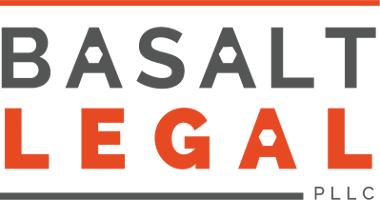- CALL TODAY
- 800.487.4660
Update on SEC Lawsuit against James Torchia and Credit Nation Capital: January 7 Hearing on Motion for Preliminary Injunction

Let’s cut to the chase: The Court has not ruled on the SEC’s motion for a preliminary injunction and will not do so until February.
The SEC has filed a civil lawsuit in the US District Court for the Northern District of Georgia accusing Credit Nation Capital, affiliates of Credit Nation Capital, and its CEO, James Torchia, of essentially operating a Ponzi scheme.
To learn more about the allegations in the SEC’s complaint, click here.
As part of this lawsuit, the SEC filed a motion for preliminary injunctive relief, asking the court for an asset freeze and to appoint a receiver to take over Credit Nation Capital.
As many investors know, the Court heard arguments from the SEC and Defendants on whether the SEC’s motion should be granted on January 7. In fact, the evidentiary hearing even spilled over into January 8.
While investors are very eager to know whether this motion has been granted, they will have to keep waiting for a while longer. The Court has set up a schedule for supplemental briefing on the SEC’s motion, with some briefs due on February 1, 2016. Consequently, investors should not expect a ruling from the Court until February.
At this point, investors may reasonably wonder, “What’s taking so long? Are Credit Nation Capital and James Torchia crooks, or is the SEC a rampaging gorilla?”
To understand why the Court is taking so long, investors need to understand both the process for obtaining preliminary relief in general and some of the specifics of this case.
The law sets a high bar for obtaining preliminary injunctive relief.
Obtaining a preliminary injunction is no easy task, for good reason. Think about what the SEC is asking the Court to do! The SEC is asking the Court to replace Credit Nation’s management and freeze its assets before there is even a trial. Now, imagine that Credit Nation did not do anything wrong, and the SEC is overreaching in this case. If that’s true, and the Court grants the SEC’s motion for preliminary relief, it will have destroyed the careers of Credit Nation’s management (and possibly Credit Nation itself) for no good reason.
On the other hand, if Credit Nation and James Torchia really are running a Ponzi scheme and stealing investor funds and the Court does not grant the SEC’s motion, investors could be hurt even more as the Defendants continue to abuse investors over the course of what could be a lengthy legal process. The stakes are high.
When a party seeks preliminary injunctive relief, that party generally has to prove four things:
1) A likelihood of irreparable harm;
2) That the balance of potential harm favors granting the motion;
3) A likelihood of success on the merits; and
4) The public interest favors granting the motion
While this blog post is not intended to be an exhaustive treatise on preliminary injunction law, you can see why proving each of these four elements is necessary. If imminent, irreparable harm is unlikely, the court will deny the motion and let issues of liability be resolved at trial. On the other hand, if the plaintiff and the public could be harmed by a delay in obtaining relief, the court will balance that harm against the harm it would inflict on defendants by granting the motion.
Even if the balance of harm favors the moving party, the moving party must also show that it will probably win the trial. In other words, to win a motion for a preliminary injunction, the SEC needs to win a “mini trial.”
That “mini trial” was the hearing on January 7-8, and Defendants vigorously challenged the SEC every step of the way. The SEC and the Defendants each submitted over 100 exhibits into evidence and called various witnesses, including expert witnesses.
There are significant legal issues that the court needs to analyze. For example, Credit Nation and James Torchia argue that life settlements are not “securities”, so they are outside the SEC’s jurisdiction and cannot support claims of securities fraud.
There are significant factual issues the court needs to preliminarily decide. Credit Nation argues that, with the savvy purchase of $75 million life settlements for $6 million last year, its balance sheet is strong. The SEC argues that the policies are worth what Defendants paid for them, about $6 million. The Court will need to tentatively decide who is right to establish whether Defendants are truly operating at a loss.
The Court will not rule on the SEC’s motion until February.
With hundreds of exhibits, hours of testimony, and significant legal issues, it is reasonable for the Court to take additional time to review the record. The parties have also filed motions about whether certain parts of the other sides’ exhibits are even admissible, so the Court will have to reach legal conclusions about the admissibility of evidence as well before it rules on the SEC’s motion.
Investor Defense Law LLP will continue to monitor the docket for this case and will provide a blog post update when the Court rules on the SEC’s motion.
In the meantime, investors wanting to learn more about the SEC’s allegations should click here. Investors who would like to read our FAQs about this case should click here.
Investor Defense Law LLP is a law firm devoted to representing investors facing investment losses. We have offices in Georgia, California, and Washington State. To learn more and receive a free consultation, contact Investor Defense Law LLP at 800.487.4660.
THE COURT HAS NOW RULED ON THE SEC’S MOTION. TO READ OUR ANALYSIS OF THE COURT’S RULING, CLICK HERE.
The foregoing is not intended as legal advice but as general information.



